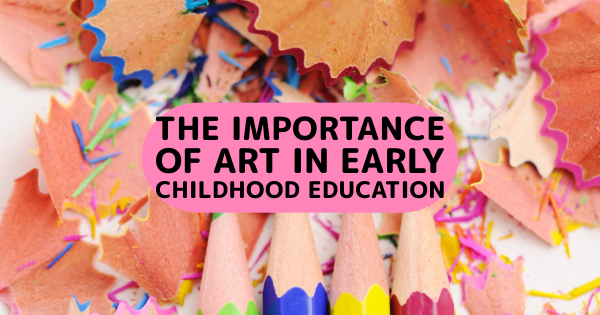
Children love to play and explore their world, and art allows little ones to do both as well as fine-tune many important skills. Art play and education are important at even the earliest stages of learning. In fact, it’s been discovered that students who study art are four times more likely to be recognized for academic achievement and three times more likely to be awarded for daily attendance, according to DoSomething.org. Fortunately, one of the many advantages of private school is the incorporation of art. Let’s look at four key reasons why art is important during early childhood education.
1. Allows Children to Have Fun
Anyone who has ever parented or worked with children in any way understands the importance of finding safe and productive ways to keep kids entertained. Art is one subject that both kids and adults can agree check all these boxes!
Children find art play and exploration fun, and adults can rest assured that the child’s time is being spent in an activity that is building skills and intelligence. When children are allowed to explore art in an organic and unstructured way, it helps them build confidence and start to feel comfortable with various mediums.
2. Helps Develop Fine Motor Skills
The development of fine motor skills is crucial in the early childhood education years. These skills will be used to teach handwriting and typing skills later on. Such skills are also necessary for many daily activities such as dressing, tying shoes, and more.
3. Enhances Brain Development
Engaging in art assists children in learning important skills such as patterning, cause and effect, and critical thinking. When children engage in art activities, they learn how to plan, use materials, use tools, problem-solve through trial and error, and more. These are critical skills that are needed later in school and throughout life.
4. Improves Math and Language Skills
Art can be a fun way to teach math skills, too! This includes learning sizes and shapes, making comparisons, counting, and understanding spatial reasoning. Language skills can also be incorporated into art activities; when children are encouraged to share their work with others, they begin to develop public speaking skills, descriptive narration, answering open-ended questions, and more.
Art education is just one of the many advantages of private school. If you’re looking for private schools in your area for early education that incorporate art into its curriculum, contact Conchita Espinosa Academy today!



